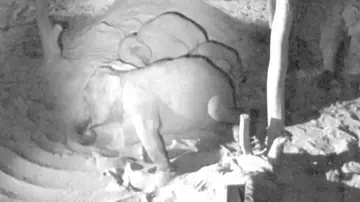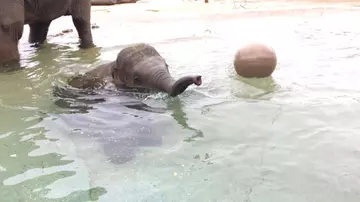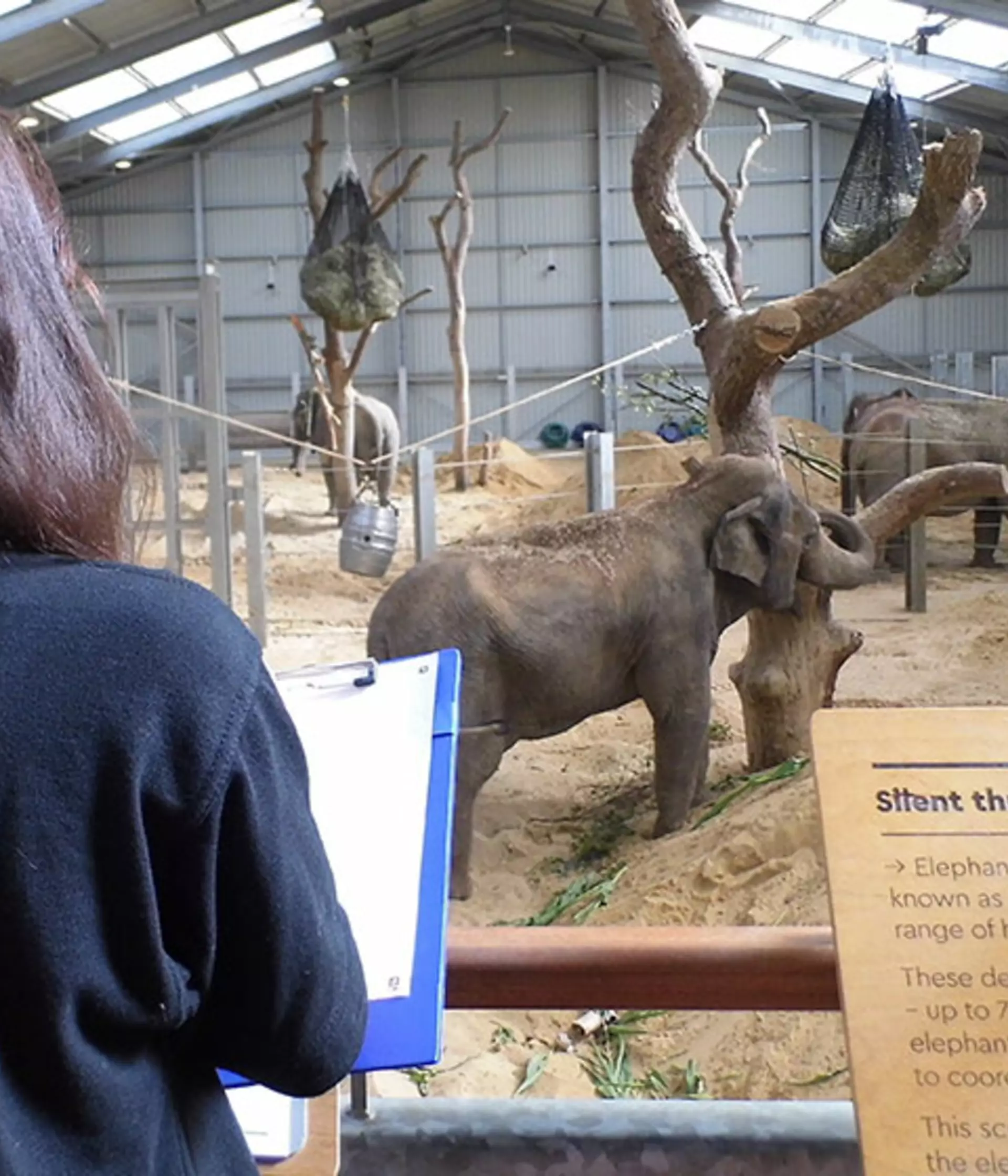
ZSL
Zoological Society of London
Research from an innovative elephant welfare and behaviour initiative undertaken here at ZSL has been published in a scientific journal.
Progressive zoos strive to learn more about the animals in their care. The most reliable way of doing this, is through collecting scientific information on all aspects of their lives using robust methods. This is known as evidence-based animal care and is something that ZSL is proud to do extensively.
One example of this work at ZSL is our elephant research programme, designed in recognition of the fact that elephants are long-lived animals with a complex social nature.
We wanted to learn more about the individuals in our herd at Whipsnade Zoo, and to collect detailed information about their daily lives.
At ZSL’s zoos, animal welfare is a top priority – for everything from tiny frogs to giant elephants, and we strive to adapt not only our practises but also the animals’ environments as we learn more about their specific needs and requirements.
Whipsnade Zoo's Centre for Elephant Care
In 2017, we opened the Centre for Elephant Care at Whipsnade Zoo to provide a brand new home for our herd.
Our elephants at Whipsnade Zoo are part of the European conservation breeding programme, which aims to ensure that we have a genetically sustainable, behaviourally, socially and reproductively competent population of elephants in European zoos.
This back-up population provides us with an unrivalled opportunity to educate our visitors about the importance of conserving the species, contribute hugely to research - be that behavioural studies or veterinary - so that we can also help improve lives of their wild counterparts and help us to fundraise to support this vital conservation work.
A new elephant research programme
As part of our research, ZSL created a new internship focussing on elephant research.
The first step in our elephant research programme at ZSL, the role enabled us to collect lots of behaviour data, both day and night (and over summer and winter) on things like how much time the elephants spend feeding, moving around, resting and socialising with one another over an eight-month period.
All of these behaviours can be used as welfare indicators – by monitoring them over time and comparing to animals in other zoos or in the wild, we are able to evaluate how our elephants are doing at ZSL.

Results from this period of data collection identified some fantastic positive results, for example, thanks to our feeding systems Whipsnade’s elephants spend a similar amount of time feeding each day, as their wild counterparts (taking lots of time to graze on their grass paddocks) and had the same resting patterns as individuals in other European zoos.
This included lots of lying rest, which is an important sign that elephants are happy, healthy and content within their environment.
As a social species, it was also brilliant to see that all members of our Whipsnade group chose to spend lots of time together and carried out high levels of positive behaviours (such as trunk touching, body rubbing and playing).

We’re always continually assessing our animals, and sometimes making a small tweak can make a big difference.
For example, providing our elephants with huge piles of leafy browse in their outdoor paddock, extends their foraging time in the afternoons as they re-visit the browse pile multiple times, and engage in feeding as a herd.
Our elephant behaviour research has been published
The results of this research have been published in the journal ‘Animals’ – this means that our results are now available for anyone who studies or cares for elephants in other zoos, and will hopefully help advise their care plans.
Good zoos collaborate regularly to share best practise, new methods and findings – it helps us all evaluate how are our animals, in this case, elephants, are doing and monitor them over time.
It allows us to identify areas to look at in more detail over the next few years, for example what our new bull elephant Ming-Jung does overnight and quite how much elephants enjoy leafy browse.
Watch this space for more updates from the ZSL elephant research programme as we’re studying how our Whipsnade elephants can contribute to conservation of elephants in the wild – to read our latest paper please click the link below:
Climate change and human activity have pushed our precious planet to its limit, causing the devastating loss of so many habitats and species. From lab to field, hands-on and behind the scenes, we’re leading the future of conservation, shaping agendas and influencing change to support better life, health and living for people and wildlife.
